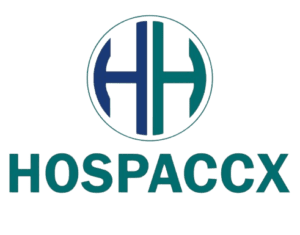Healthcare Investment Opportunities in Nepal and way ahead
Nepal, officially named as the Federal Democratic Republic of Nepal, is a landlocked nation in South Asia. Nepal’s landscape is diversified, with fertile plains, subalpine wooded hills, and eight of the world’s ten largest mountains, including Mount Everest, the highest point on the planet. Nepal is a multi-ethnic, multi-lingual, multi-religious, and multicultural country where Nepali is the official language. Kathmandu is the capital and largest city of Nepal.
In recent years, Nepal’s economic and social progress has included reducing poverty rates, increasing literacy rates, and narrowing gender disparities. The country aims to achieve the Sustainable Development Goals by 2030. However, poverty is still high in rural areas and among socially disadvantaged groups. The global outbreak of coronavirus disease (COVID-19) in 2020 and the subsequent nationwide lockdown to contain the contagion have adversely affected Nepal’s economic growth, equity, and poverty reduction achievements.
Healthcare Snapshot of Nepal
The country has a mixed health service delivery system, comprising the public sector, private for-profit sector, and nongovernmental organisations (NGOs). The Ministry of Health (MOH) serves rural, underserved populations; private providers, including NGOs and faith-based organisations (FBOs), predominantly serve urban populations.
In 2014 Nepal’s healthcare sector employed approximately 50,000 people, including skilled and semi-skilled personnel. Healthcare services are delivered by public and private sector entities and account for a total expenditure of over US$ 1 billion each year. This figure amounts to nearly 6% of Nepal’s Gross Domestic Product (GDP) and translates to a per capita expenditure of US$ 40 for the year 2014. This figure, which is lower than the global average, is nevertheless higher than most South Asian Association of Regional Cooperation (SAARC) countries..
Investing in Nepal
In recent years, Nepal has made great strides towards attracting private sector investments. The Investment Board Nepal, chaired by the Right Honourable Prime Minister, is a high-level government body which was established in order to fasttrack large investments and act as a one-window facilitation agency by mobilising and managing domestic as well as foreign investments.
Similarly, Nepal is in the process of amending various laws and regulations to make them more investment friendly.
Current Healthcare Investment Opportunities in Nepal
In recent years, well-known firms have increased their investments in the health sector. Grande International Hospital, Norvic International Hospital and Vayodha Hospital Pvt. Ltd are well known examples of hospitals with investment from such firms. Foreign joint ventures are also entering the Nepali health service market
Gautam Buddha International Maternity Hospital Project
The IBN is looking for investments into a 200-bed state of the art health care facility that offers affordable, holistic and patient-centric healthcare promoting medical tourism specifically through maternity and related services by capturing the essence of giving birth at the pious birthplace of Gautam Buddha.
Various Speciality Centres would include: Obstetrics and Gynaecology, Paediatric, IVF (Invitro Fertilisation), Cardiology, Neurology, Pulmonology, Orthopaedics, Urology, Pathology, Renal Sciences, Physiotherapy, Nutrition and dietetics, and Emergency and trauma centre.
Dhulikhel Medi-City project
Nepalese government is also looking for investments into the School of Medical Sciences, a 300-bed university hospital with aim to provide unique health care value across diagnosis, consultation, prescription and tertiary care with optimal combination of technology and professional services delivered by experienced faculty and trained graduates. The school would also have a strong research component, especially in the areas of biomedical research and public health.
Investments are also encouraged for the supporting infrastructure that would be built to truly convert the development into a medi-city. Retail malls and spaces would be built to provide one-stop shopping experience for healthcare and more. Infrastructure would also include restaurants, coffee shops, banks, and so on. To cater to the accommodation needs, guest houses, apartments (including serviced), and hotels would be built.
Education, Sports and Health City Project
The Office of the Investment Board (OIBN) is commissioning a study to evaluate the feasibility of setting up an Education, Sports and Health City.
A University would be the central component of the education component. The University would host liberal arts undergraduate college as well as specialist graduate, professional, sports and technical schools. This would include a 300-bed university hospital with aims to provide unique health care value across diagnosis, consultation, prescription and tertiary care with optimal combination of technology and professional services delivered by experienced faculty and trained graduates. It would also have an ultra-modern blood bank and diagnostic centre.
The City would have a Wellness Centre offering an integrated selection of holistic wellness and spiritually enriching programs and products would also be present.
Conclusion
Nepal has a mixed health-care system that relies on both public and private provision of health-related services and products. While access to quality health care in Nepal is poor, expanding the health sector would help address this development need while also creating quality jobs.
The overall regulatory and policy landscape in the health sector supports partnership with the private sector. It is worth noting that the Ministry of Health and Population is already using PPP arrangements and the private sector already plays a significant role in Nepal’s health sector. It is especially important in the areas of service delivery, human resources and education, pharmaceuticals, and health financing. It includes both not-for-profit entities, such as non government organisations (NGOs) and faith-based service providers; and for-profit commercial entities, such as system-enablers, health-care information/service providers, and producers of health-related products.
As a least developed country, Nepal is entitled to preferential treatment in a number of rich markets. The European Union´s Everything But Arms initiative is particularly relevant in this context. Two other advantages, according to investors already in Nepal, are a low-cost and non-hostile workforce and a small and accessible bureaucracy. The natural as well as cultural and health profile assets of Nepal offer very substantial opportunities to investors.
For more information about the Country and Healthcare opportunities in Nepal, you can visit the company website on www.hospaccxconsulting.com or contact us directly.









